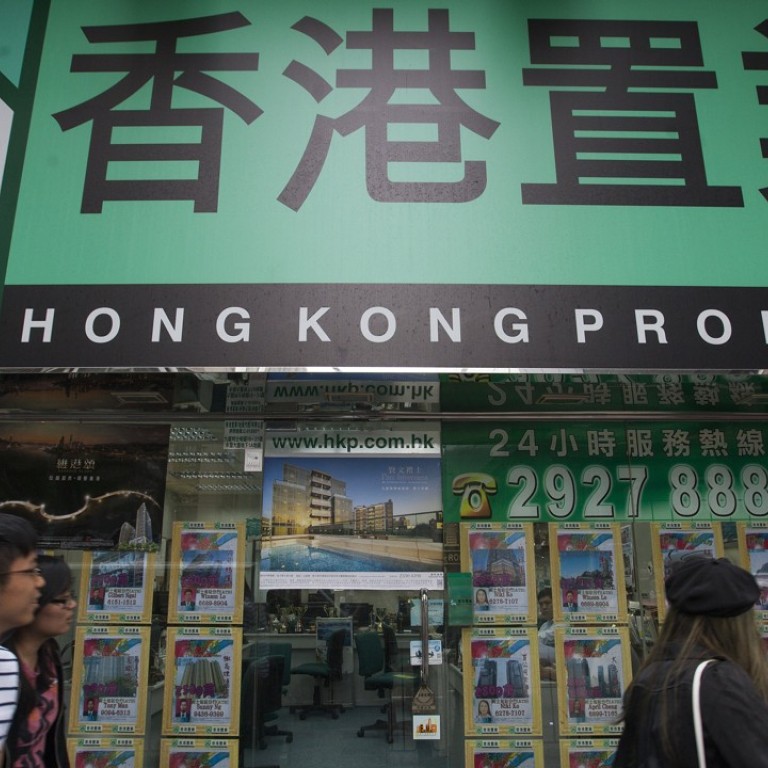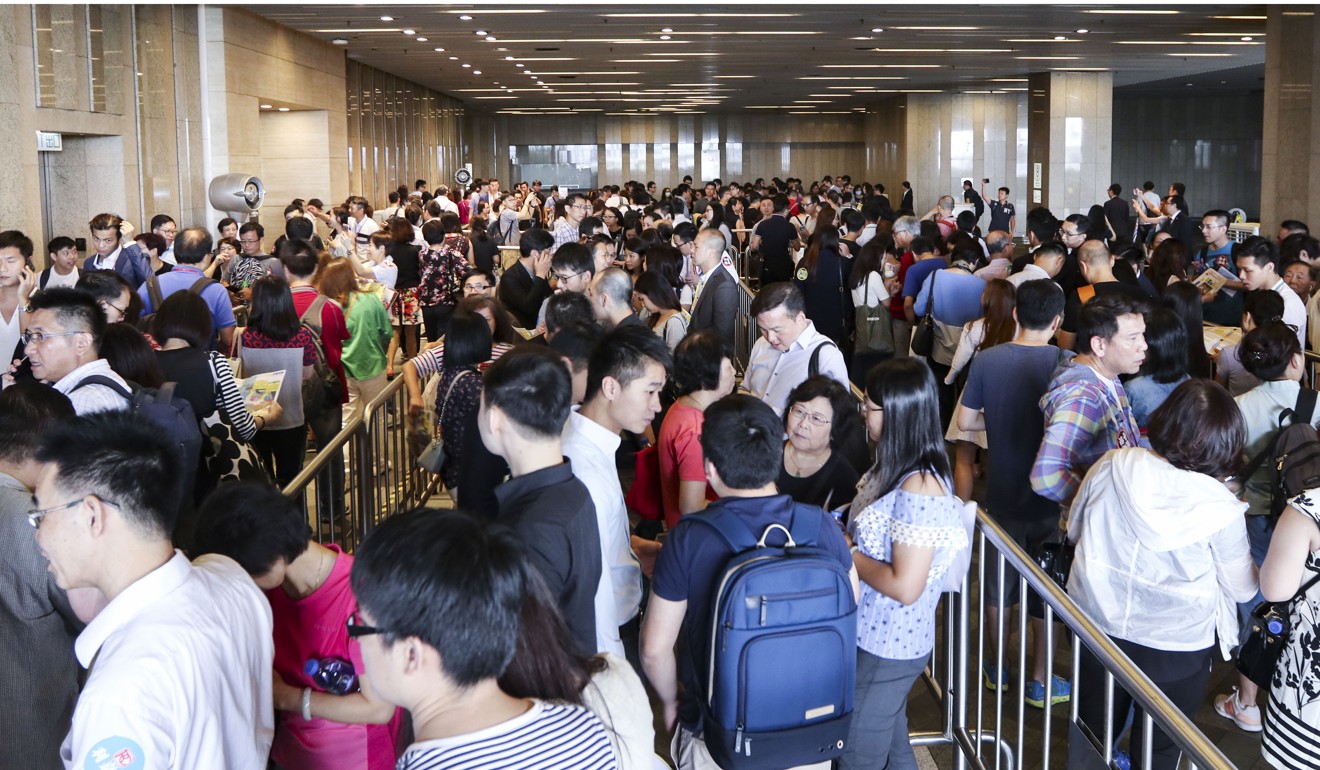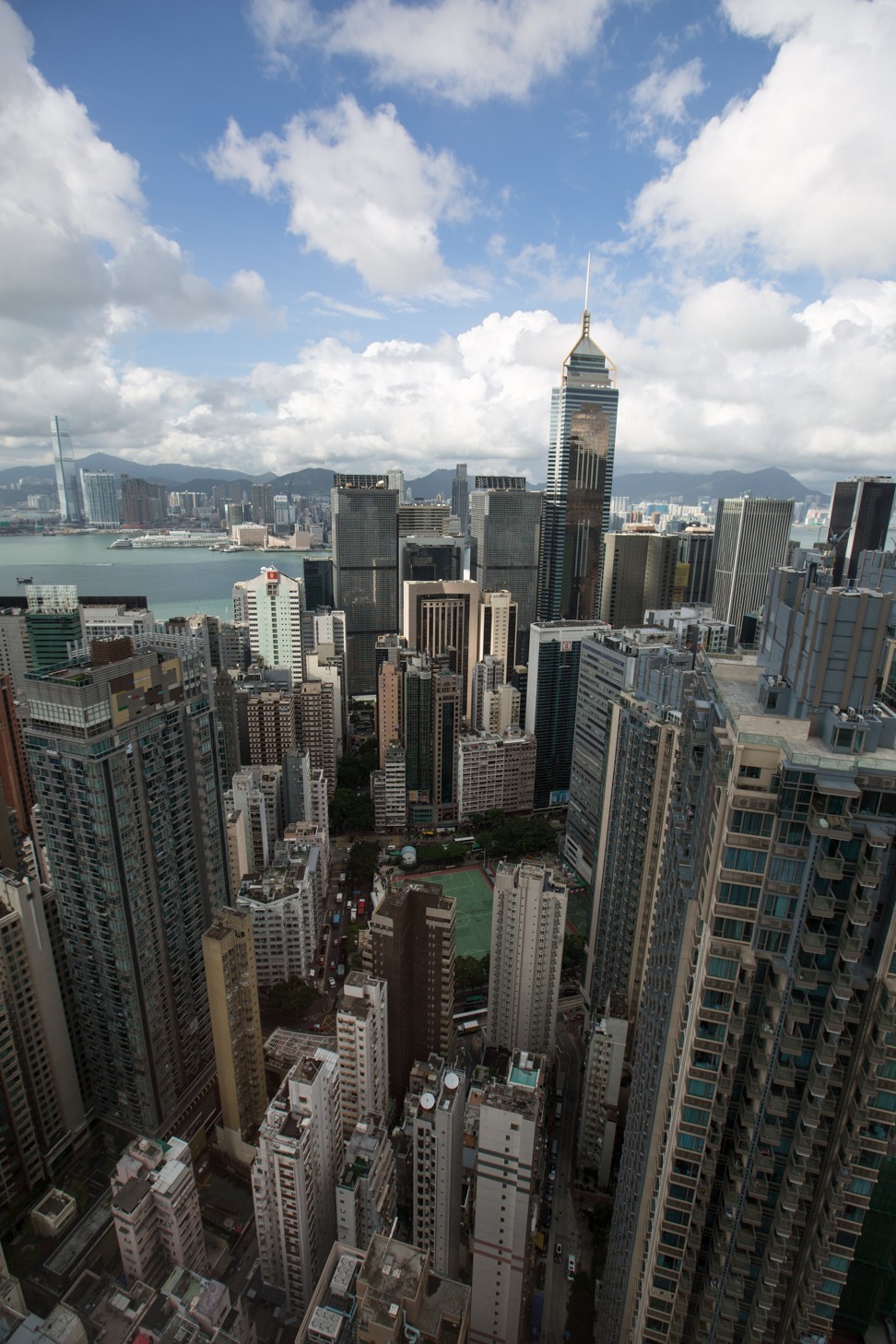
Can a government push for home ownership ease Hong Kong’s housing shortage?
Regina Ip says the latest policy measures may well reduce waiting time for public rental flats. Unfortunately, they will also create massive new demand for private housing, at a time when prices are already sky-high
Expectations were high. In particular, there was high hope for policy breakthroughs in remedying Hong Kong’s acute land and housing shortage. Talk of “public-private cooperation” in releasing agricultural land held by private developers fuelled a bull run of property stocks before the address. But as Lam failed to deliver sufficient details on the plan, property stock prices quickly fell back to more mundane levels.
Lam’s solution, as revealed in her speech and subsequent elaborations by Frank Chan Fan, the secretary for transport and housing, is to encourage those eligible for public rental housing to buy government-subsidised housing instead, so as to reduce the long queue for rental flats.
Under the “Green Form Subsidised Home Ownership Scheme”, first launched in 2016, flats originally earmarked for rental to public housing applicants were sold to eligible tenants instead. The pilot scheme was heavily oversubscribed and successful home buyers handed 700 public rental units back to the Housing Authority.
Carrie Lam looks to boost home ownership in Hong Kong with cheaper flats for the middle class
In light of this success, Chan announced that the government would convert 4,000 public housing units planned for Fo Tan, Sha Tin, into subsidised homes for sale to “green form” applicants.
Likewise, to shorten the waiting time for public rental housing, in 2013 and 2015, the Housing Authority launched two rounds of a scheme to enable applicants of moderate means to buy Home Ownership Scheme flats without paying a premium. The premium waiver energised the secondary market for such subsidised flats, and 4,000 units were sold. The government estimates that a total of 380,000 subsidised fats are available on the secondary market for sale to aspiring homebuyers. That would again reduce the demand for public rental housing.
According to the secretary, the government is encouraging home ownership because it could not meet its target in public housing production. Chan admitted that, under the government’s long-term housing strategy, it was supposed to produce 280,000 public flats between 2017-18 and 2026-27. But it is now on course to produce only 236,000 units. Thus, officials have no choice but to encourage public housing applicants to buy subsidised homes.
The catch is, in reallocating sites originally earmarked for public rental flats and using them now to build housing for sale, the government risks failing to meet the needs of the neediest groups in our society who simply cannot afford to buy homes.
Another problem is, given the objective to encourage the “circulation” of subsidised homes, as owners of subsidised flats move up the property ladder by selling their flats and entering the private market, the government will create massive new demand for private housing, at a time when the only way for home prices to go is up.
Hong Kong government lacks creative ideas to tackle soaring home prices

Such a move is extremely dangerous, as greater demand would further drive up home prices, aggravating the housing bubble and making home ownership even more elusive to young people.
Thus, Lam’s housing policy is perplexing in that while she said “our community has a rightful expectation towards the government to provide adequate housing”, her home-ownership-focused policies would further encourage the view of housing as a commodity, rather than a basic need.
It is debatable whether the government should prioritise home ownership and even speculation, when there remain large numbers of poor people living in indecent conditions.
Watch: Residents swelter in Hong Kong’s subdivided flats
As for the much-touted “starter homes” scheme through leveraging land owned by private developers, Lam was able in her policy address to point to the provision of only about 1,000 such units by end of 2018, by imposing conditions on land to be sold to developers.
Watch: How the government can work with private developers to tackle housing crisis
Although Lam has spelt out the income limits for the scheme, the attractiveness of such an offer cannot be assessed at this stage, without knowing the extent of the discount to the market, the resale restrictions and the premium requirement. Clearly, it is not easy to knock together a scheme that is affordable and appealing to first-time homebuyers, without inviting accusations that the government was favouring private developers.
Hong Kong’s developer cartel in line to benefit from Carrie Lam’s schemes, industry watchers say
In trying to overcome the housing shortage problem, Lam faces the same stumbling blocks as her predecessors did.
There is no short cut to producing new land, not even for public housing. Lam is torn between improving people’s living conditions, and producing homes to meet people’s desire for wealth creation. She walks a tightrope in encouraging Hongkongers to buy homes, subsidised or otherwise. Encouraging home ownership may not free up as many public rental units as we like. And should the housing bubble burst, as it did during Tung Chee-hwa’s administration, our current chief executive would have a lot to answer for, when facing the homebuyers and speculators who got burnt.
Regina Ip Lau Suk-yee is a lawmaker and chairwoman of the New People’s Party


